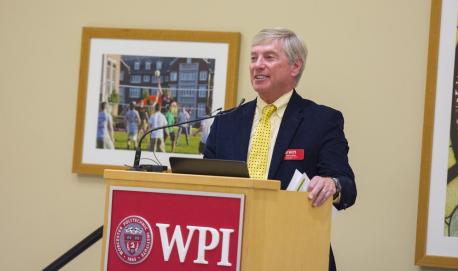
For undergraduate instruction, I enjoy relating the fundamentals of individual material properties and biological processes to the engineering of complex systems or processes to produce medically useful products. Coupling engineering principles with the inherent challenges of biological systems to understand and predict system behavior in the context of the capstone design experience is of particular interest. I currently consult for several companies in the area of development of cell and engineered tissue based therapeutic product development and genetic diagnostics. Where appropriate, I relay these experiences to both undergraduate and graduate students to bring current activities and challenges facing the industry into their educational experience. I also enjoy participating in training and mentoring programs involving undergraduates from peer institutions and secondary education teachers to help bring current biotechnological concepts into their curriculum. For research, understanding the interplay between cells and their environment with respect to growth factor/cytokine signaling is becoming a powerful tool with which to control cell phenotype and has applications in regenerative medicine and wound healing. In our lab we study the effects of ambient oxygen tension and cell culture substrate on the effect of specific growth factors in determining the growth rate, state of differentiation, and regeneration potential of primary human cells. Environment-induced alterations of cell phenotype are studied in skeletal muscle wound models. We are also interested in the development of three-dimensional in vitro models of skeletal muscle formation and function. We have employed novel biopolymer microthread technologies developed in the BME Department to deliver these cells in vivo to study their regeneration potential. In addition, we also study the effect of cell culture environment and substrate related to the control of cell phenotype and stem cell differentiation using primary adult cells derived tissues such as bone marrow, skin, and skeletal muscle. At the graduate level, I strive to create an environment where students are free to explore and develop their own independent ideas and concepts related to the overall research objectives. I encourage active collaboration and interaction with fellow colleagues involving diverse disciplines.
Scholarly Work
Induction of stem cell gene expression in adult human fibroblasts without transgenes. Page RL, Ambady S, Holmes WF, Vilner L, Kole D, Kashpur O, Huntress V, Vojtic I, Whitton H, Dominko T. Cloning Stem Cells. 2009 Sep;11(3):417-26. doi: 10.1089/clo.2009.0015. PMID: 19622035
Hypomethylation trends in the intergenic region of the imprinted IGF2 and H19 genes in cloned cattle. Curchoe CL, Zhang S, Yang L, Page R, Tian XC. Anim Reprod Sci. 2009 Dec;116(3-4):213-25. doi: 10.1016/j.anireprosci.2009.02.008. Epub 2009 Feb 11. PMID: 19282114
Intracytoplasmic sperm injection in the bovine induces abnormal [Ca2+]i responses and oocyte activation. Malcuit C, Maserati M, Takahashi Y, Page R, Fissore RA. Reprod Fertil Dev. 2006;18(1-2):39-51. PMID: 16478601
Animal cloning applications in agriculture. Page RL, Ambady S. IEEE Eng Med Biol Mag. 2004 Mar-Apr;23(2):27-31. Review. No abstract available. PMID: 15264465
Genomic imprinting of H19 in naturally reproduced and cloned cattle. Zhang S, Kubota C, Yang L, Zhang Y, Page R, O'Neill M, Yang X, Tian XC. Biol Reprod. 2004 Nov;71(5):1540-4. Epub 2004 Jul 7. PMID: 15240429
